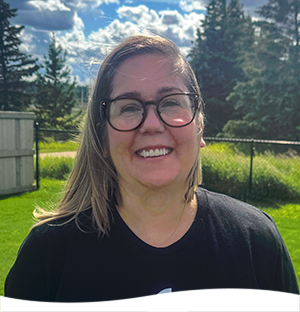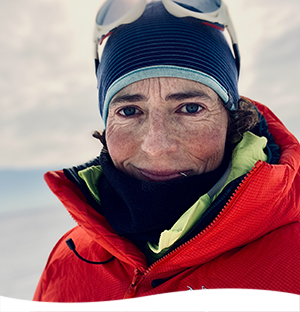The Resilience Institute was awarded Canada's Clean50 Project of the Year for our collaboration with the Piikani Lands Department on the Seeding our Future with Sweetgrass program.
Our initiative, Expanding Understanding of Community-Relevant Climate Adaptation in Small, Rural and Indigenous Communities across Canada, will receive funding under the Natural Resources Canada’s Climate Change Adaptation Program (CCAP).
Every year, we are witnessing more and more climate-induced disasters across Canada. You can help by making a donation this season that will strengthen the resilience of small, rural and Indigenous communities. Donate prior to February 28, 2025 to receive a 2024 charitable tax receipt.
The Resilience Institute (TRI) is a national charity based in Canada. Our team works locally and globally with diverse partners to minimize suffering caused by climate impacts. Weaving local and Indigenous ways of knowing with science and technology is a cornerstone of our work.
The Resilience Institute’s partnership with the Piikani Nation was featured in ReGeneration’s “ReWork Your Future” docuseries. Click play to watch our segment, or click below to watch the full episode.
Roots for Resilience is a pan-Canadian program developed and delivered by The Resilience Institute and the Canadian Red Cross in a unique partnership aimed at inspiring an ecosystem of change in disaster risk reduction and climate change adaptation.
In the wake of the devastating wildfire that swept through Jasper in July 2024, which reshaped both the landscape and the lives of residents, the community of Jasper came together in a remarkable expression of healing, reflection, and renewal.
A project titled Building a Monitoring Program Inspired by the Traditional Piikani Winter Count brought knowledge holders from the Piikani Nation together with students and climate experts from the University of Calgary.
The Resilience Institute was born from the passion of a small group of interdisciplinary scientists who felt that there was a huge disconnect between climate science, communication, and action on climate change. That passion provided the impetus to create a national charity that today is focused on education and applied research that will advance resilience to the current and future consequences of climate change.
Sign up for our newsletter. You will receive our Quarterly Updates and event invitations on topics relevant to you.
There is too much of a delay between planning and action to reduce vulnerabilities to climate impacts. Our Adaptation Action goals include a flexible pool of funds to enable the implementation of community-identified adaptation and disaster risk reduction strategies – without delay.

Give the gift of resilience.
Your holiday donation supports Indigenous and rural communities as they shape strong, resilient futures.

Laura Stewart is the Community Wildfire Resilience Coordinator with Forsite Fire, supporting communities across Canada with wildfire risk assessments, mitigation planning, and program delivery. She has more than a decade of experience advancing wildfire resilience at Indigenous, municipal, provincial/territorial, and national levels. Previously, Laura served nearly eleven years as Alberta’s Provincial FireSmart Specialist, leading community, WUI, neighbourhood, and Home Ignition Zone programs, coordinating funding, and partnering with communities and fire services across the province. She has also served as Board Chair with both the Partners in Protection Association (FireSmart Canada) and the Community Wildfire Resilience Association of Alberta.

Sara Walsh, PhD, is a disaster risk reduction and climate resilience specialist with more than 15 years of experience spanning Canada, Nepal, the Middle East, and North Africa. Until November 2025, she served as Thematic Lead for Climate and Resilience with the International Federation of Red Cross and Red Crescent Societies (IFRC), where she supported Red Cross and Red Crescent Societies to strengthen their climate and risk reduction work across the region. Sara currently works as a freelance consultant with the United Nations, governments, and humanitarian organizations on recovery, risk governance, and community-based resilience. She teaches at a Canadian university and holds a PhD in Disaster Risk Reduction. Her work emphasizes anticipatory action, equity, and bridging research with practice to shape more resilient and sustainable futures.

Alison Criscitiello, PhD, is an ice core scientist and high-altitude mountaineer who explores the history of climate and sea ice in polar and high-alpine regions using ice core chemistry. Alison’s work also focuses on environmental contaminant histories in ice cores from the Canadian high Arctic and the water towers of the Canadian Rockies. In 2010, she led the first all-women’s ascent of Lingsarmo, a 22,818-foot peak in the Indian Himalaya. Alison has earned three American Alpine Club (AAC) climbing awards, the John Lauchlan and Mugs Stump alpine climbing awards, as well as the first Ph.D. in Glaciology ever conferred by MIT. She is an Assistant Professor and the Director of the Canadian Ice Core Lab at the University of Alberta. She is the co-founder of Girls on Ice Canada.